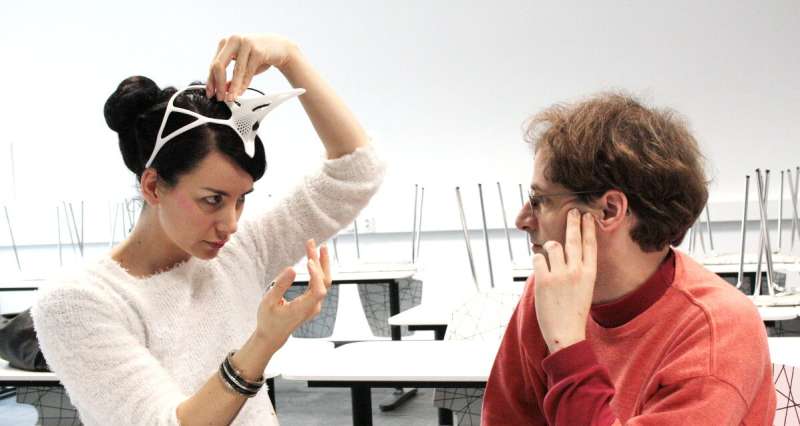June 4, 2019 weblog
Agent Unicorn headset for ADHD children may make understanding easier

The quest for a better understanding among scientists of children with attention deficit hyperactivity disorder (ADHD) goes on.
Medication is promoted to help with symptoms, but, noted IEEE Spectrum, "it doesn't help in understanding why a child with ADHD is more prone to react to certain stimuli, or how their symptoms might be treated in a way that reduces reliance on drugs."
A brain computer interface (BCI) has been developed which may help serve up more clues. It is designed to monitor kids' brains, for those identified with attention deficit hyperactivity disorder (ADHD).
Center-stage is the headpiece, which incorporates an EEG (stands for electroencephalography, referring to the use of devices to measure the brain's electrical activity).
The device, dubbed Agent Unicorn, picks up the neural signature of attention, P300. With EEG, electrical signals are recorded by sensors attached on the human scalp to detect brain activities.
How does the headpiece work? It has a projecting horn (inspiration for its Agent Unicorn name) carrying an 8-megapixel camera. The camera records video during states of heightened P300 activity, as detected by EEG built into the headpiece. Specifically, the camera captures video that is transmitted to a computer when the EEG detects, via electrodes, a particular type of brain wave associated with attention.
Scientists know that kids with ADHD have a delayed P300 wave, said Jesus Diaz, Fast Company.
The headpiece is especially interesting because of its design and the very designer behind it, Anouk Wipprecht. She wanted to take the exercise of assessing ADHD into a more natural environment reflecting not the white lab coat's world but the child's world as the main setting.
"One of the advantages of Agent Unicorn is the chance to gather data when a child is in a mental state closer to that of their day-to-day life, due to the more natural environments that the headpiece can be used in, and the agency it offers children," she said.
"Instead of a doctor measuring their brain activity in a clinic, while they're chained to a machine via 64 head-mounted electrodes, children can pick up and place the device on their heads themselves while in a playroom or classroom."
Wipprecht in IEEE Spectrum explained what the P300 event-related brain potential signal is all about—and she. told the story of how she came up with this. This article appears in the June 2019 print issue as "A Brain Interface to Capture Your Attention."
In 2016, she was in Austria as an Ars Electronica Futurelab artist-in-residence. She had in mind a headpiece that helps children with ADHD and their caregivers better understand what environmental cues are associated with symptomatic problems.
Her research goal was a device that would provide the data needed for ADHD insights by monitoring both the brains of children and their environments.
P300 is nothing new to researchers who know it as a voltage pulse, and often connected to decision making. How is it useful in ADHD research? "The P300 signal is often measured when diagnosing children with ADHD," she wrote, "because the signal takes longer to manifest and isn't as strong as it is in children without ADHD."
The headpieces have LEDs that flash during P300 events. She said, "This can make a therapist's job easier by highlighting moments when a child becomes especially attentive."
The EEG board in the headpiece is connected to a Raspberry Pi Zero W single-board computer. The EEG board can be used without applying conductive gel.
What's next? She said clinical studies are in progress to confirm the value of using Agent Unicorn to treat children with ADHD.
Diaz in Fast Company weighed in on what effects such a headset could have on treating children with ADHD.
Monitoring in their daily environment would give caregivers a better window on their world. "If caregivers can see how the environment affects these children, they would be able to modify the environment to help them with their condition, rather than just administering a stimulant..."
More information: www.unicorn-bi.com/agent-unicorn/
© 2019 Science X Network
















